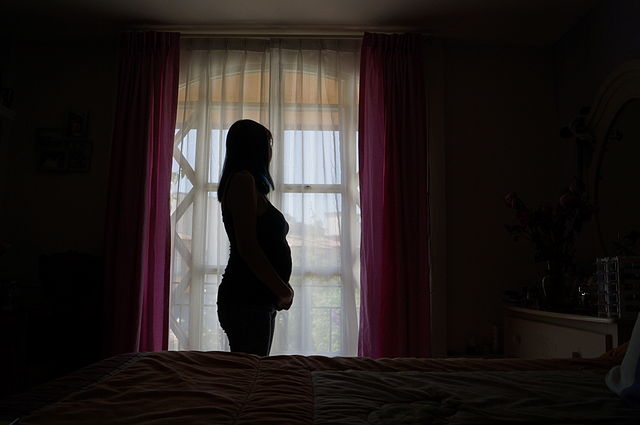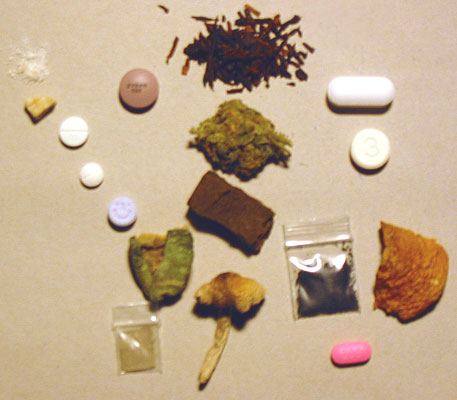Parenthood Is Full Of Surprises: How To React When They’re Unpleasant Ones.
When you become a parent, you know that you are in for a lifetime of surprises. All that you can really hope for is that most of them are pleasant and that you’ll be ready and able to help when they’re not. Your job as a parent is not to be there every moment of their day – would you have liked it, if your parents had been? It is simply to offer them encouragement, catch them when they fall and provide them with the tools to take on life.
Sometimes, they will fall. Particularly between the ages of about 12 and 18, when they start to get a bit more independence. Independence without experience is a dangerous mix, but there’s really no choice. You can’t get experience without independence. And given that you learn from your mistakes, well, you can see where this is going. Your kids will make mistakes. The question is, what level of errors will they be?
They can range from the fairly innocuous to ones that every parent dreads hearing. There’s no desire to scare you here – as a parent, it’s safe to say that you’ve run through all the worst-case scenarios in your head before. But what you can do is have an idea in your head of what you would do in any of the situations that might arise. It’s better to hope for the best and prepare for the worst, as they say.
Scenario #1: “Mom, Dad… I’m Pregnant/My Girlfriend Is Pregnant”
Every parent thinks once in a while about the day they will become a grandparent. It’s a quite pleasant reverie to have. When you’ve pictured it, though, the chances are that you imagined you’d have a few gray hairs when it happened. You hope for it to happen after they’ve left school, as a preference. But that’s not how it always works out.
Any teen telling their parents this will expect apoplectic rage. It may well be what you feel when they tell you, but it cannot be what you show. Your next question needs to be straight and to the point and delivered with absolute calm. “So, what are you going to do?”. You need to listen to what they say, advise them as supportively as possible. Most of all, you need to let them know you’re there for them.
Teen pregnancy is far from a new thing. Even if you have strict opinions on sex before marriage, or they’re underage, it can still happen. You know that. Ask yourself one question: Are you comfortable with the idea of them leaving home and having a child where you can’t be there for them? If not, you need to swallow any anger for the moment. They know this isn’t how it’s supposed to be.
Scenario #2: “Mom, Dad… I’ve Got An Eating Disorder”
At any given time, there are half a million teens across the United States dealing with an eating disorder (according to http://www.nationaleatingdisorders.org/general-statistics). Across a lifetime, twenty million girls and women, and half as many males, will have an issue. That means it’s not common enough to be shrugged off, but it is something that could easily happen in your household. And it is a scary thing for any parent to hear.
Your first emotional reaction, after the initial, inevitable fear, should be relief. The tendency of most people with an eating disorder is to hide it, and there are many ways to do so. Some sneak food off their plate and hide it at dinner time. Some turn the shower on to mask the sound of vomiting. If your teen comes to you and tells you they have an eating disorder, they’ve realized it’s a problem, and they want help.
It’s often said that anorexic and bulimic people look in the mirror and see a fat person looking back. It’s untrue. They just don’t think they’re thin enough. And the reasons for feeling this way, taking this course of action, are multiple. It could be from bullying at school or from a desire to look like super thin models. What they need from you is a listening ear.
Your next course of action should be to look for a counselor. Eating disorders are mental illnesses with a physical manifestation. They can be seriously persistent. Your troubled teen needs to express their feelings and find the answers they’re looking for.
Scenario #3: “Mom, Dad … I’ve Got A Drug Problem”
Many parents, when they hear the “Mom, Dad” part, will fear this above all. No-one who left school after, charitably, the mid-1960s can say they haven’t known of someone who at least used drugs at their school. We hope – and hope is all we can do – that our kids, when offered the chance, say “no”. They may experiment and decide it’s not for them. Studies show that more than a third of twelfth-graders have used marijuana in the last year. One in twenty has tried heroin or a similar drug.
Your own attitudes to drugs will, no doubt, inform your response to your child’s confession. But if they are recognizing that it is a problem, they have come to you for help. So your only option is to help. Sit down and talk to them. Ask them how far it has gone. Find out – without hitting the roof – if they owe money as a result. And get in touch with someone who is qualified to help, such as Rehab.com. You’ll be an essential support to them – but the pros are there for a reason.
Drug addiction is a hugely complicated situation. It begins with an experimental dabbling and for many, stays that way. But not everyone has that self-control, and taking something for a buzz can become a dependency. Unchecked, it can destroy lives. You need to be strong – your child may not be able to.
Scenario #4: “Mom, Dad … I’m Dropping Out”
The thing every parent most wants for their child is that they get the best education and have the opportunities they deserve. Sometimes, as adults, we are guilty of forgetting how hard school was. College, too. It’s a scary place to be – peer pressure, alienation and bad influences are always a risk. And, especially with college, there can be a point where your child decides they want no further part in it.
You can plead with them to give it a chance. After a lot of back-and-forth, they may even see the logic of your argument and give it a try. But if their mind is made up, you’ll get nothing from laying down the law. You then need to think about how you will make the best of the situation.
There are many who argue that going to college straight from school is not a good idea in any case. Leaving home and living on campus right out of school is incredibly testing. When you add to that the pressures of making the academic and social grade, it’s a world of stress. Stress like they’ve never known before and will struggle to deal with. If this is their situation, withdrawing and planning to try again in the future when they’re ready may be the best bet.
Kids and teens get themselves into situations that they instantly or eventually regret. Nothing will change that. You can give them advice right throughout childhood and adolescence. Most of the time, they will listen. Remember that they’re not equipped to make decisions as an adult, but have the impetuosity to think they can. That’s a heady and often problematic combination – and it’s something you need to help them manage.









All kids face some tough obstacles. We all faced many of the same things, thankfully I came out okay and just hope and pray the same for my kids. One day at a time and good conversations are hopefully the key.
Ugh! Now that my kids are getting older these situations seem more real to me. Thanks for the advice on how to handle these scenarios if they should unexpectedly pop up.
Such a great topic even though it is a difficult one. I think parents really need to keep communication open with their teens and be there for them no matter what.
Parenting is no joke! There will always be surprises for sure. Glad for this information to help guide parents forward when the issues come up!
I wish I could shelter my children forever, but I know that’s not possible. These things do happen. Like you mentioned with teen pregnancy, it’s not a new problem. But our reaction needs to be supportive and ensure that any hurdles our children face in life won’t be total blockades to a successful future.